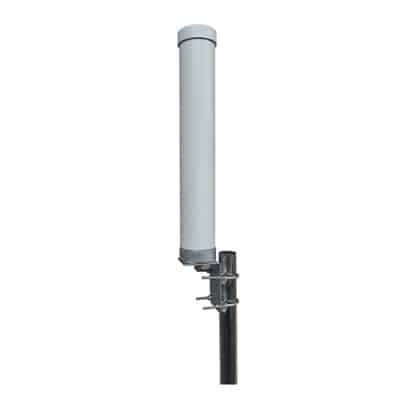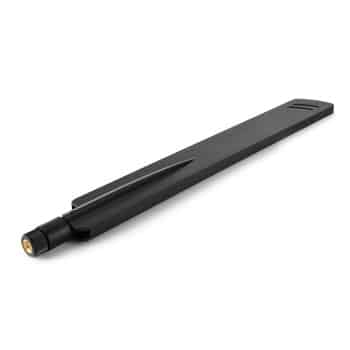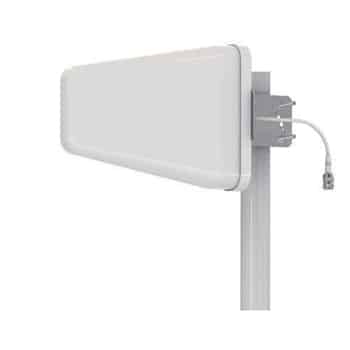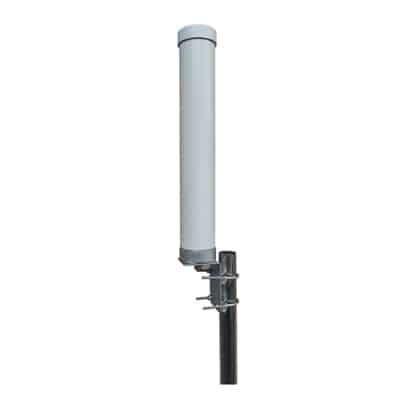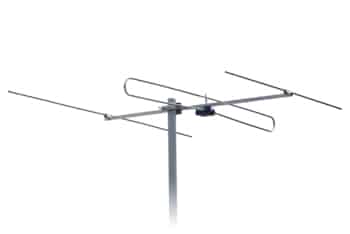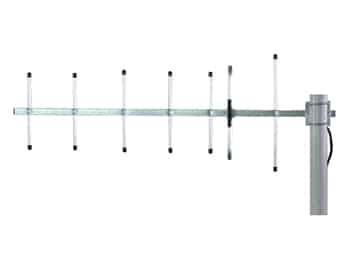The implementation of the Internet of Things is trending more than ever. At this point, Cisco predicts that there will be 500 Billion IoT devices by 2030. This number exhibits wireless communication technologies’ growth in the last few years. LoRaWAN is among the critical long-distance communication applications. Therefore, it is essential to understand what a LoRaWAN gateway is and its role in such IoT applications.
Table of Contents
ToggleWhat is a LoRaWAN gateway?
LoRa is a communication network that perfectly meets the long-range and low-power requirements of IoT systems. A LoRaWAN gateway plays a crucial role in any LoRaWAN system, enabling communication between end-nodes (such as sensors) and the LoRaWAN network server.
With a LoRa antenna, these gateways can communicate with the node devices within the LoRa network to collect their data. Data from these electrical devices can then be transmitted to the network server through Cellular, Ethernet, or Wi-Fi internet. The reverse flow occurs through the LoRaWAN gateways while remotely instructing the LoRaWAN actuators.
LoRaWAN gateways aid applications where other short-range or high power consumption communication protocols fall short. However, it is vital to understand the variety of LoRaWAN gateways to build the right LoRa network infrastructure.
Types of LoRaWAN gateway
LoRaWAN gateways gather inputs from end nodes and forward them to the central server through the internet. However, there are two significant types of LoRaWAN gateways for different environments:
1. Indoor LoRaWAN gateways
As the name suggests, Indoor gateways are more suitable for closed environments. Such gateways are inexpensive and provide a good range across indoor environments, even through walls, floors, and ceilings. These LoRaWAN gateways often have an indoor LoRaWAN antenna. Their range ideally depends on the indoor structure but can extend up to several kilometers.
2. Outdoor LoRaWAN gateways
Outdoor gateways are well-suited for outdoor long range LoRaWAN applications to cover massive areas. They can serve several smart city applications such as smart parking, waste management, water flow monitoring, and many more. Often, these gateways are placed at an elevated level for extended communication range. Outdoor gateways mostly rely on external LoRaWAN antennas for extended propagation. These gateways can withstand environmental conditions like rain to serve outdoor applications.
What can Tesswave do for you?
Tesswave provide 100+ antenna products and you can contact us for antenna customized solutions, get in touch with us today to get a Free quote.
Get an Instant Quote
Get a FREE quote and we will contact you within an hour
The key advantages of LoRaWAN gateways
LoRaWAN gateways offer several advantages compared to other traditional network gateway devices. These advantages make LoRaWAN networks efficient and reliable for industrial needs.
1. Scalable network architecture
While a LoRaWAN gateway can serve many node devices, it is effortless to expand the network further. Adding another LoRaWAN gateway in the network can further increase the coverage with minimal efforts and investments. Such scalability can be a game-changer for industrial and smart city needs.
2. Minimal downtime and maintenance
LoRaWAN gateways and topology offer a robust “Star-on-star” topology where a node broadcasts a message to all gateways in the range. Deduplication and downlink allow the network server to pick the best reception. In addition, this flexibility with multiple gateways makes it easy to maintain or fix a LoRa network with minimal downtime.
3. Low cost & compliant
LoRaWAN gateways are legal across countries and can be used at no cost for radio band use. In addition, one can add a personal LoRaWAN gateway that anyone within the range can use. Such hassle-free implementation is the key to the global implementation of LoRaWAN.
Conclusion
LoRaWAN gateways are the building block behind successful LoRaWAN implementation. Choosing the right gateway and properly installing it can be vital for an effective solution. As such, understanding the system needs precisely can be a solid start towards your LoRaWAN gateway implementation.

